Description
ABSTRACT
The Tax Framework and the Challenge of Foreign Investments in Nigeria
Reginald Mezu*
INTRODUCTION
As with most commercial endeavors, investors generally aim to profitably conduct business in a stable, protective and encouraging environment. These objectives generally apply to genuine medium to long term investors, irrespective of whether the businesses are foreign owned or owned by nationals of the investee country. One difference between the mindsets, or considerations, of the local investors and those of foreign investors is that those who decide to invest outside their countries of domicile tend to also evaluate potential candidate countries before choosing which country to invest in. Countries are therefore invariably in competition to attract foreign investments. The logical extension is that developing countries, often in greater need of foreign investments, would be inclined to strive stronger than countries with more advanced economies to ensure that they can competitively attract desired types of foreign investors and investments.
Tax considerations come in when these other hurdles are cleared. However, looking singularly at the fiscal aspects, the key governance challenge for a country’s administration is how to attract foreign investments on a sustainable basis whilst maximizing government revenues from the investments. In this regard, the domestic tax rules, other supporting relevant legislation, and the mechanism for enforcing the rules and encouraging the investments are critical. From a tax perspective, a foreign investor is typically interested in finding answers to the following questions:
a. What corporate structure vehicles are available to a foreigner to set up the business in the country?
b. When will the liability to tax be established (e.g. when a business is set up or when income is sourced from the country) and will the tax base reflect the actual results of the investor?
c. What are the applicable tax rates, including withholding taxes, and are there any relevant tax breaks and how do these compare to other potential investee countries?
d. Are there indirect taxes, and are they based on Value Added principles?
e. Is there an open and transparent tax compliance and dispute resolution process?
f. Is the country party to a wide network of double tax treaties, and how are these enforced?
The answers to each of these, once obtained, will not be considered in isolation but assessed together to then form a picture of the conduciveness of the tax terrain; the strongest overall picture sought being whether the rules are clear and consistently applied, and whether foreign businesses are fairly treated and protected by the law and in its enforcement.
So how are these tax relevant comparative features perceived with respect to Nigeria? Some of the views in the following analyses are based on experiences and perceptions of actual and potential investors as expressed to me, in many cases overwhelmingly, over more recent years.
* LL.B, LL.M, BL, ACA, ATII, Solicitor (England and Wales). International Corporate Tax Adviser, Cragus Group, Dubai, UAE

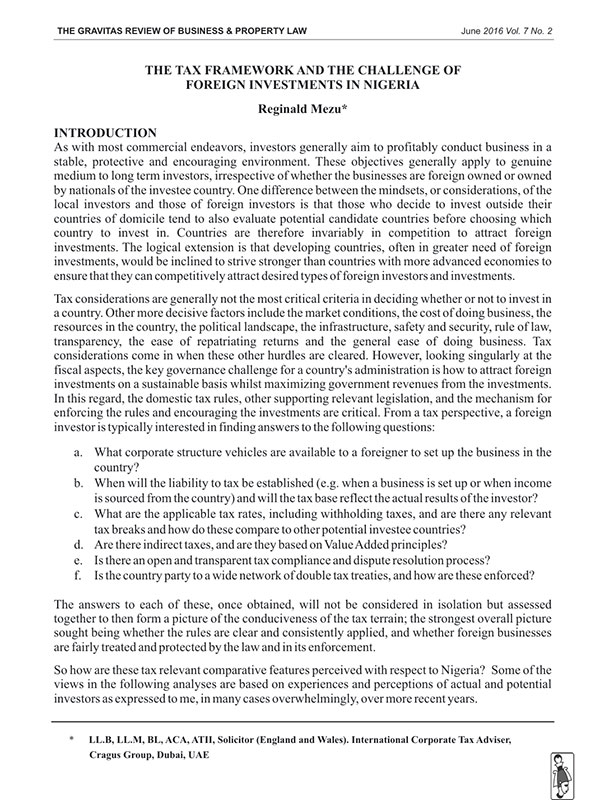
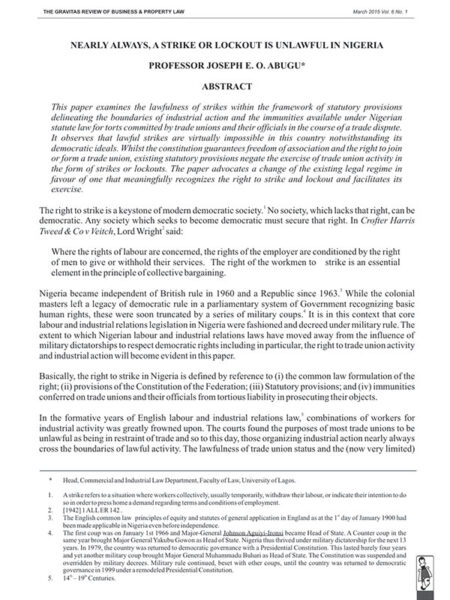
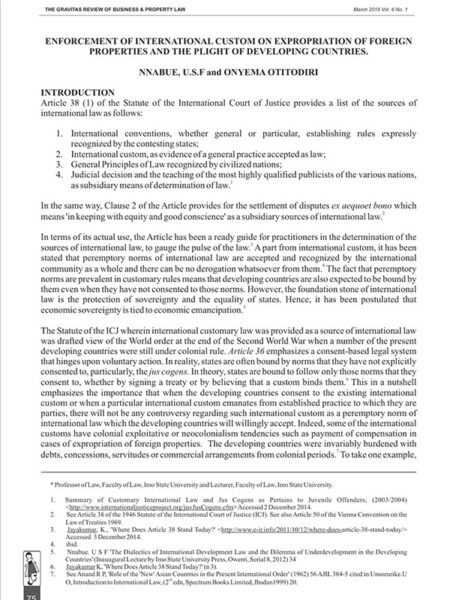
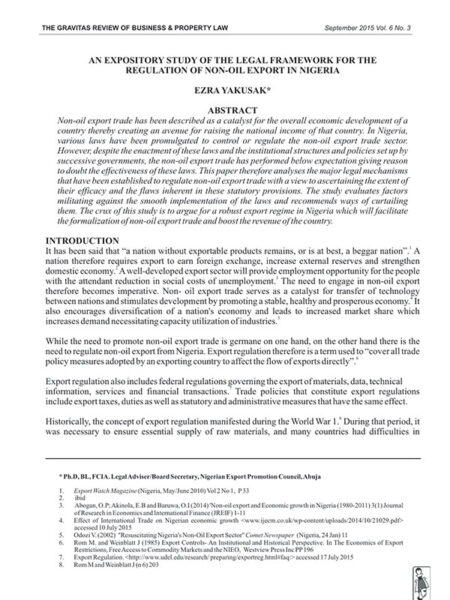
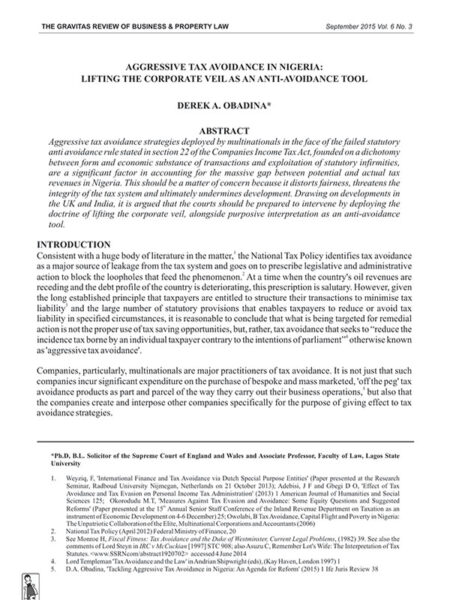


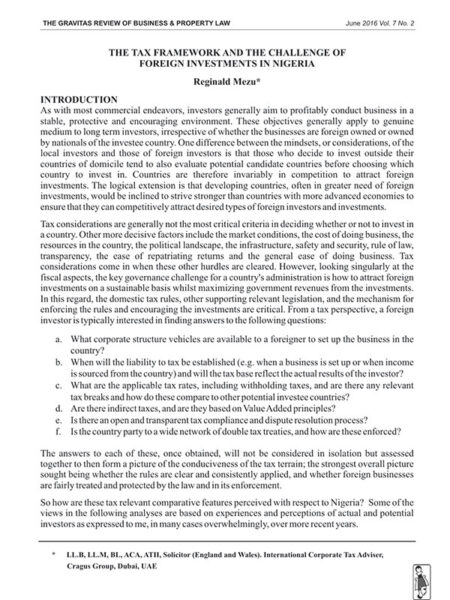
Reviews
There are no reviews yet.